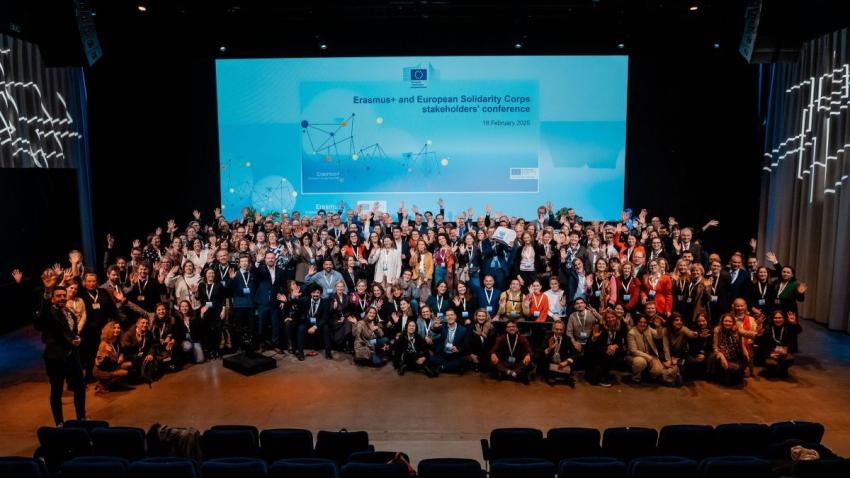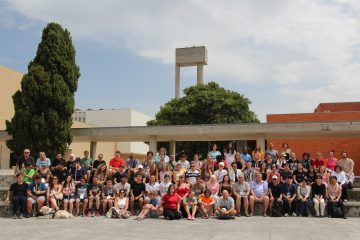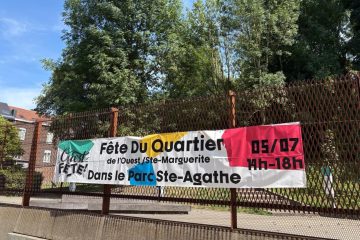On 18 February 2025, VIEWS International was in Brussels to attend a stakeholder conference reuniting representatives from National Agencies and Ministries, European institutions and networks, SALTO Resource Centres, as well as education providers and European associations. During the conference, stakeholders exchanged expertise and experiences in the Erasmus+ and European Solidarity Corps (ESC) Programmes, and laid the groundwork for the first phase of co-creation of the post-2027 programming period of both Programmes.
VIEWS International’s participation was supported by the French-Speaking National Agency, Bureau International Jeunesse, enabling us to share our experience in implementing adapted projects for visually impaired young people.
The event opened with a welcome speech from Pia Ahrenkilde Hansen, Director-General for Education, Youth, Sport and Culture. This was followed by insightful speeches from Roxana Mînzatu, Executive Vice-President for Social Rights, Skills, Quality Jobs and Preparedness, and Glenn Micallef, European Commissioner for Intergenerational Fairness, Youth, Culture and Sport. Both highlighted the significant impact of the Erasmus+ and ESC programmes on both direct and indirect beneficiaries, while underscoring the importance of enhancing inclusivity across all Programmes’ activities.
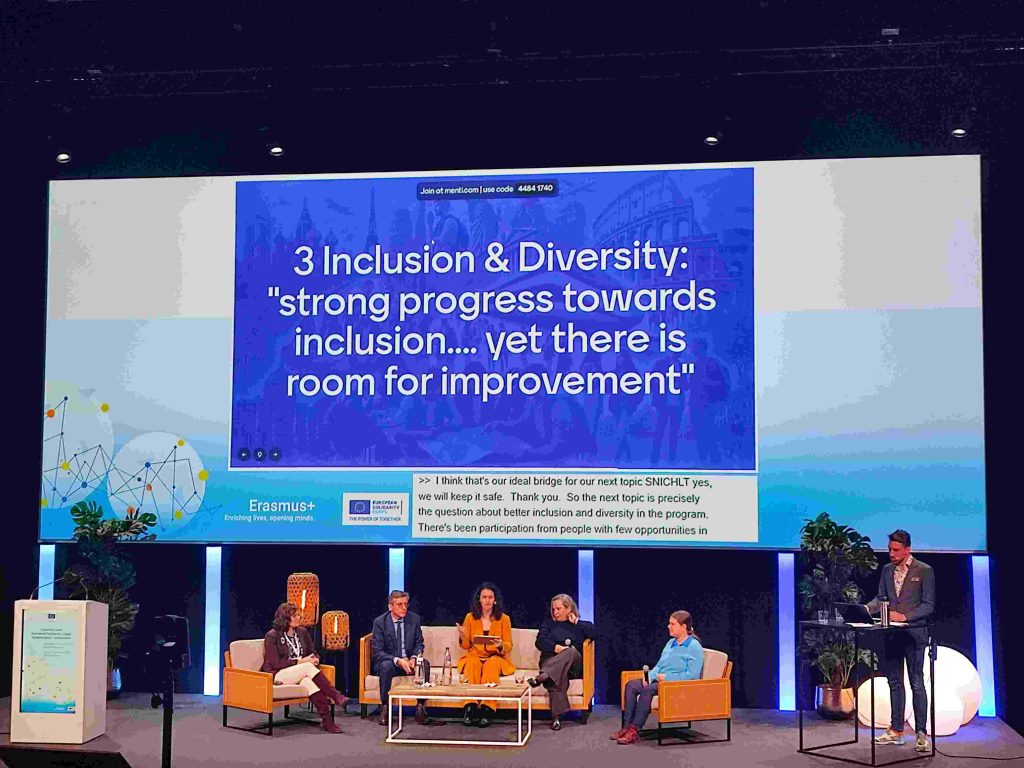
The first panel discussion focused on the importance of accessibility as a cornerstone for fostering equal access to Erasmus+ and ESC opportunities.
All panelists agreed on the need to simplify procedures, strengthen inclusive measures as well as ensuring that digitalisation enhances rather than hinders accessibility.
Loredana Dicsi, Membership, Internal Communication & Youth Coordinator at the European Disability Forum and ESC Mentor at VIEWS International, stressed the need for consistent monitoring of accessible and inclusive approaches to ensure their effective implementation by stakeholders.
Furthermore, Dicsi emphasised that raising awareness, providing targeted training for staff, and developing skills to address inclusion and diversity are essential steps in supporting all beneficiaries. She also advocated for embedding accessible practices at all stages of programme delivery to ensure that inclusion is not merely a goal but a fundamental principle.
Gabriella Civico, Project Manager at the Centre of European Volunteering, highlighted the essential role of volunteering in strengthening democracy and promoting European values. She called for a shift in the narrative surrounding ESC projects towards their recognition as meaningful intercultural and life-changing experiences for both in-country and cross-border volunteers.
Lorraine Gilligan, representing the Irish National Agency Léargas, highlighted the need to make Programmes’ priorities more complementary and cross-sectoral. She stressed the importance of adopting an intersectional approach to inclusion and diversity, noting that participants with fewer opportunities should not be compelled to label themselves solely based on perceived disadvantages.
In the afternoon, participants joined parallel workshops exploring various aspects of the Erasmus+ and ESC programmes. VIEWS International contributed to the session on Inclusion and Outreach to a Wider Audience, focusing on strategies to enhance programme accessibility for underrepresented groups, including those with visual impairments.
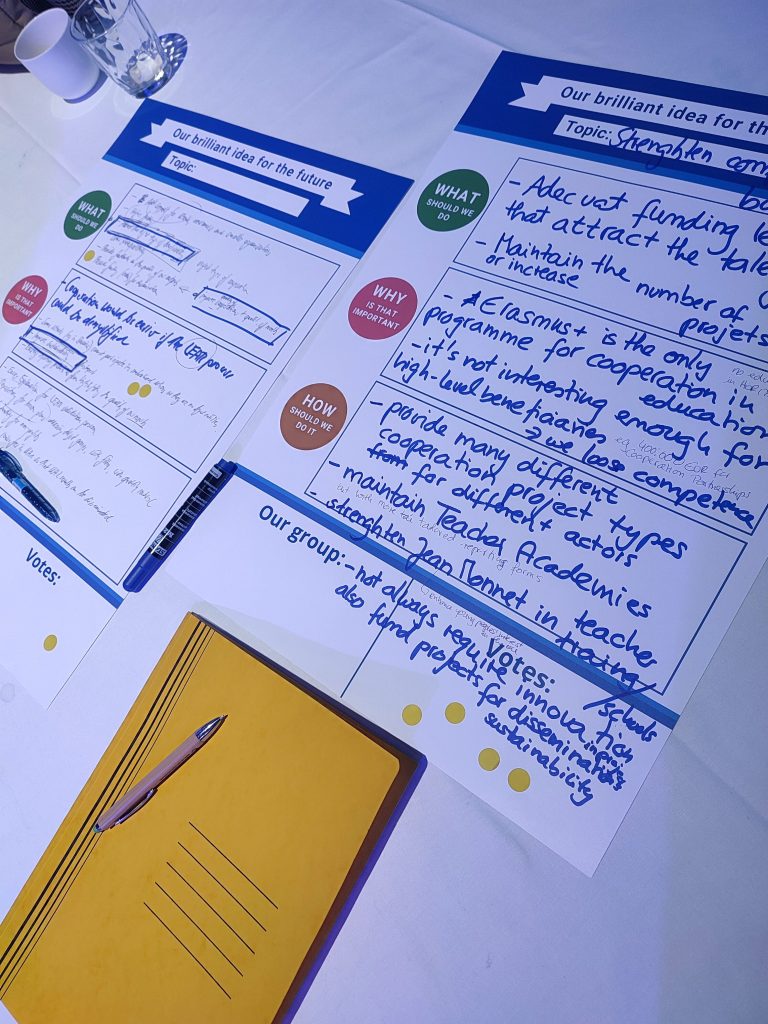
Key suggestions emerging from the workshop included:
- Rethinking the age limit for all participants with a specific focus on people with fewer opportunities who faced barriers which are impacting their early participation in European projects;
- Advocating for removing stigmas linked to health issues while providing adequate mental health support during and after E+ and ESC project, if needed;
- Significantly improving accessibility features on the official platforms to better support beneficiaries during their applications as well as individuals with disabilities in navigating the digital space.
In the concluding session, attendees identified five strategic priorities for the post-2027 programming period:
- Put European values at the centre of E+ and ESC projects, while emphasising the added value of intercultural and intersectoral learning;
- Simplify procedures to submit, manage and report projects;
- Foster co-creation and participatory approaches when designing the new post-2027 Programmes;
- Increase cross-sectoral support and cooperation not only by boosting capacity building activities at the local level but also via the existing European platforms which may be improved in their content and in their usage;
- Invest more financial resources to support Programmes’ beneficiaries and increase the quality and quantity of meaningful co-funded initiatives and projects.

VIEWS International’s perspective
VIEWS International strongly advocates that inclusion cannot be separated from accessibility. Both elements must be integrated at every stage of Programmes’ design and implementation to ensure equal access and meaningful participation.
Inclusion should be considered a necessary investment in a more equitable and diverse society. This commitment should be reflected in dedicated funding for assistive technologies, personal support, and adaptation measures, ensuring that organisations have the resources to host young people with disabilities. At the same time, youth workers from organisations participating in Erasmus+ and ESC programmes should be trained and given the right tools to support volunteers with fewer opportunities effectively.
By incorporating lessons learned from past programming periods and embracing more inclusive and accessible practices, the post-2027 Erasmus+ and ESC programmes have the potential to empower young people from diverse backgrounds, foster meaningful intercultural exchange, and create a more equal and connected European society that goes beyond its geographical borders.
